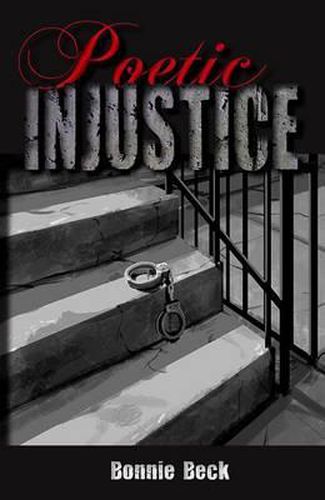Readings Newsletter
Become a Readings Member to make your shopping experience even easier.
Sign in or sign up for free!
You’re not far away from qualifying for FREE standard shipping within Australia
You’ve qualified for FREE standard shipping within Australia
The cart is loading…






In Poetic Injustice poet/cop Bonnie Beck brings to us the real life of a police officer on the beat, which turns out to be funny, heartbreaking, frustrating, nightmarish, and, most odd, loving. The encounters she describes with meth addicts, dealers, suicide corpses, families starving in heatless winter dumps, prostitutes, and various hustlers of all stripes, are rendered with unsentimental, muscular language–the poems breathe, they live. Again and again, coming in contact (as cops do) with people at the absolute worst moments of their lives, Beck does her legal duty cleanly and efficiently. But then she goes an extra step, buying gloves for the young thief released on a chilly winter day, slipping money to a prostitute who ends up calling her Pig on the street, ordering pizza for the family of a woman and her young children living in decadent poverty, remarking mildly to herself, strange that you are picky about the toppings. It is a stark world, in which no good deed goes unpunished, and most of the action takes place at night, with only sorrow in the sun. The fact that the poet can continue on with any sense of hope at all is miraculous. But, somehow, she does. The worlds of poet and police officer seem to be, in fact and in fiction, a cosmos apart.
$9.00 standard shipping within Australia
FREE standard shipping within Australia for orders over $100.00
Express & International shipping calculated at checkout
In Poetic Injustice poet/cop Bonnie Beck brings to us the real life of a police officer on the beat, which turns out to be funny, heartbreaking, frustrating, nightmarish, and, most odd, loving. The encounters she describes with meth addicts, dealers, suicide corpses, families starving in heatless winter dumps, prostitutes, and various hustlers of all stripes, are rendered with unsentimental, muscular language–the poems breathe, they live. Again and again, coming in contact (as cops do) with people at the absolute worst moments of their lives, Beck does her legal duty cleanly and efficiently. But then she goes an extra step, buying gloves for the young thief released on a chilly winter day, slipping money to a prostitute who ends up calling her Pig on the street, ordering pizza for the family of a woman and her young children living in decadent poverty, remarking mildly to herself, strange that you are picky about the toppings. It is a stark world, in which no good deed goes unpunished, and most of the action takes place at night, with only sorrow in the sun. The fact that the poet can continue on with any sense of hope at all is miraculous. But, somehow, she does. The worlds of poet and police officer seem to be, in fact and in fiction, a cosmos apart.